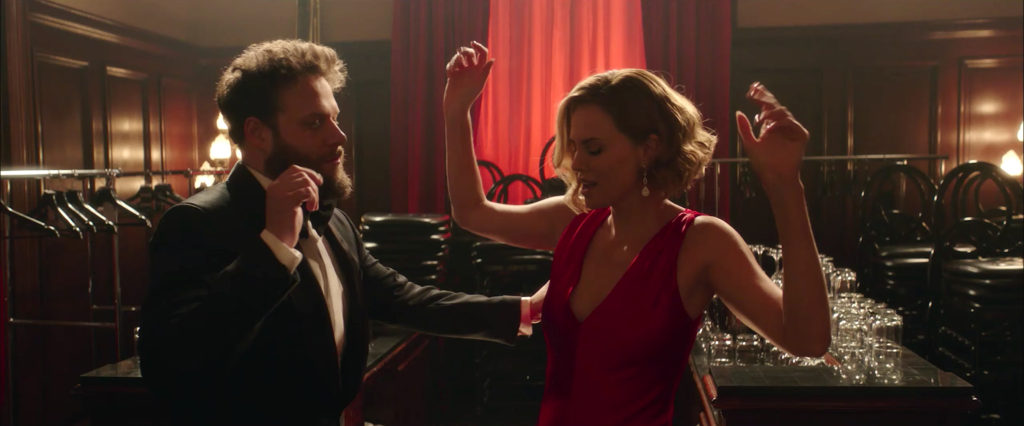Long Shot: Love and Laughs on the Campaign Trail

A romantic fantasy in more ways than one, Long Shot is a beauty-and-the-beast love story that simultaneously aspires to work as a thorny quasi-satire of contemporary politics. It aims not only to tell a crowd-pleasing tale of sweetness and levity, but also to impart a valuable message to the American electorate. This is a laudable idea, one with a rich cinematic history; Aaron Sorkin fans will fondly remember The American President, while film enthusiasts of a different generation may recall Mr. Smith Goes to Washington. But to borrow language from the political realm, Long Shot is a smoke-and-mirrors candidate, spouting handsome rhetoric but skimping on actual, meaningful substance. When the pairing of Seth Rogen and Charlize Theron is one of the more credible ideas on screen, you have perpetrated a fraud on the moviegoing public.
Have I gone too far? Maybe. If you approach Long Shot while wearing a certain set of blinders—if you ignore its poisonous ideas and its philosophical sloppiness—you may perceive it as a harmless little rom-com, a passably diverting use of two hours. The acting is quite good, not only from the leads but also the supporting cast, in particular June Diane Raphael as a dubious staffer and O’Shea Jackson Jr. as a loyal confidant. The script, by Dan Sterling (The Interview) and Liz Hannah (The Post), isn’t nearly as hilarious as it thinks it is, but it features its share of clever lines, while the direction, by Jonathan Levine (50/50), includes the occasional visual flourish amid the forgettable point-and-shoot mundanity. Theron gets to do a spit take and simulate rolling on molly, while Rogen, best known for his verbal dexterity, receives an opportunity to showcase his gifts as a physical comedian. It is an avowed cinematic truth that watching a man fall down a flight of stairs is always funny, as is seeing him spurt bodily fluids in unintended places. Read More
